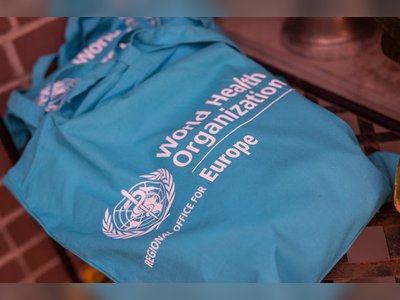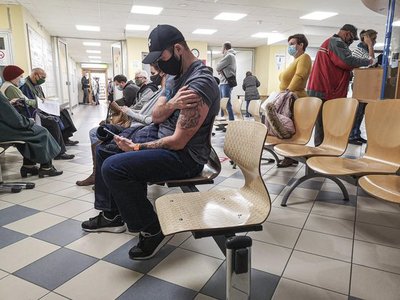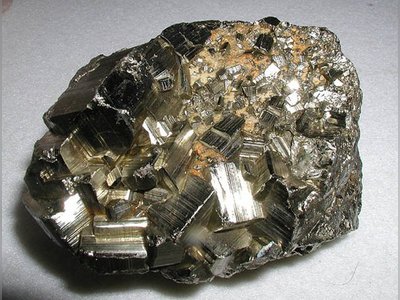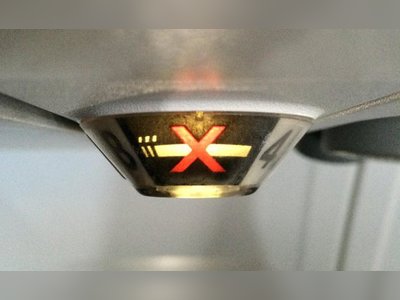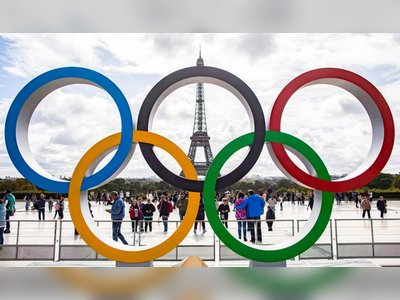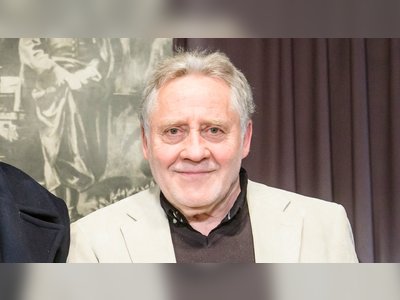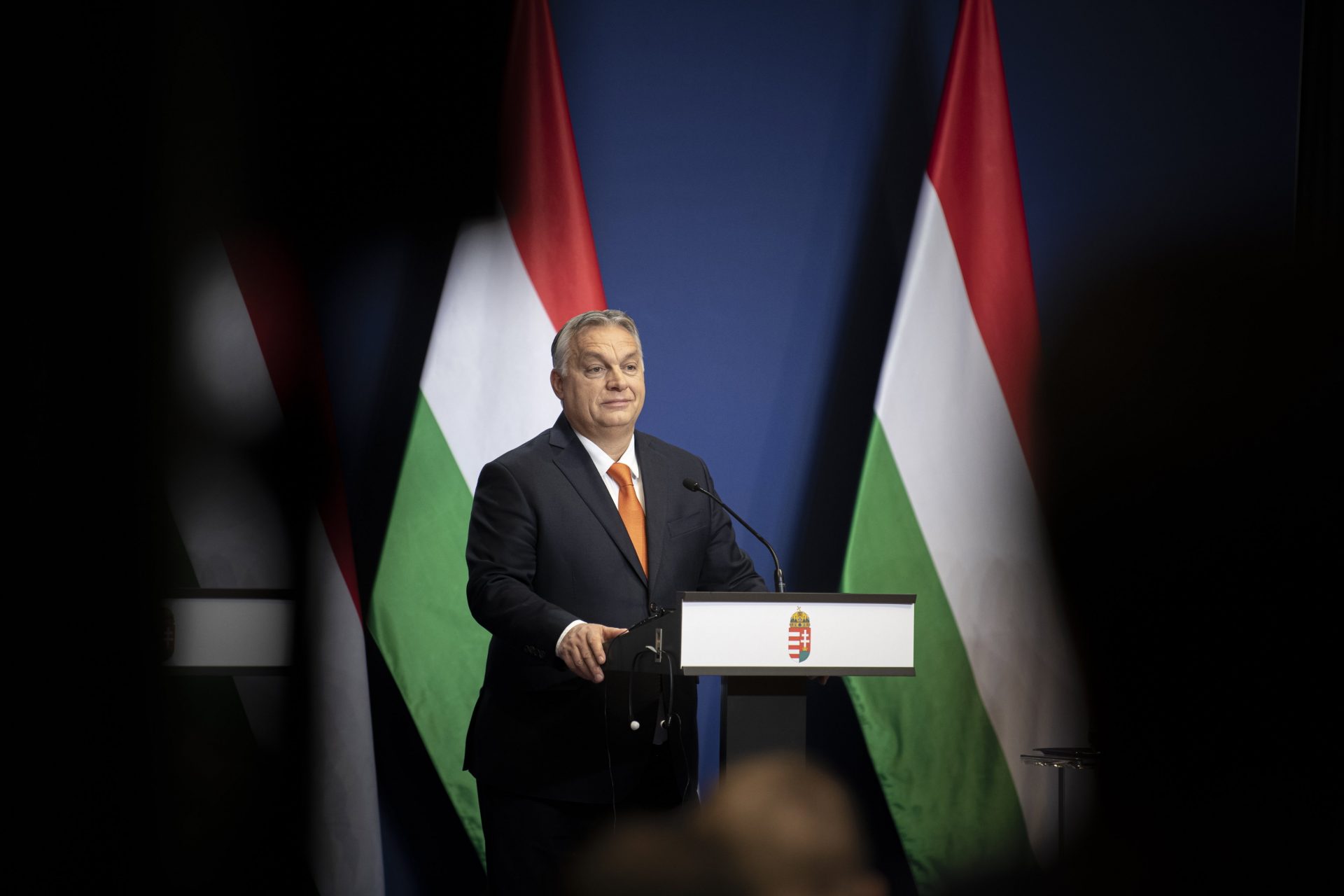
Orbán: Hungary stands by border protection practices
The government will continue its efforts against the coronavirus pandemic based on the vaccination of residents, the prime minister said on Tuesday. Viktor Orbán also announced that Hungary stands by its border protection practices and it would "not allow in anyobody".
Orbán told an international press briefing that booster jabs and the vaccination of the 5-11 age group were in the focus of the government’s Covid response measures.
He said 32 percent of the Hungarian population had now received a third shot, adding that the European average was 21.5 percent.
The prime minister highlighted the efforts of scientists across the world that resulted in providing vaccines against Covid. He expressed his sympathy with families in which the pandemic had claimed lives and wished a speedy recovery to those currently ill.
Orbán noted that in 2021 the government had been able to turn to the use of vaccines and could abandon pandemic defence measures that were based on self-isolation. He said it had been clear to Hungary as early as the beginning of the year that only the vaccine would guarantee an effective defence against the pandemic. “Everything else just allowed us to buy time, but victory can only be achieved with the help of the vaccine,” he said.
Orbán noted that Hungary had early on procured vaccines from multiple sources and had swiftly inoculated 5.5 million people, or 60 percent of its population against the virus.
“But we haven’t made much progress from there,” he said, noting that a total of 6.2 million people had got the jab.
Meanwhile, he said the government had based its pandemic response and economic recovery measures on the findings of the National Consultation public surveys returned by more than 2 million people.
Orbán noted that Hungary’s government had spent 1,700 billion forints (EUR 4.6bn) on supporting the investments of 1,435 private sector players. As a result, 4.7 million people have jobs, while the unemployment rate is at 3.9 percent compared with the European Union average of 6.7 percent. The government’s efforts have also yielded an economic growth rate above 6 percent, he said, adding that the government put GDP growth between 4 and 5 percent for next year.
Meanwhile, the prime minister announced that ruling Fidesz was nominating Katalin Novak, the minister for family affairs, for Hungary’s next president. Incumbent President Janos Ader’s second term will expire on May 10 next year. Under the constitution, the same person cannot be elected president for a third term.
Orbán voiced regret that the constitution restricted the president’s tenure to two terms, adding that Fidesz, of which he is chairman, had tendered its nomination.
He also said that a new family affairs minister was set to be appointed from Jan. 1.
Asked how Novak could represent the unity of the nation being a Fidesz party politician, Orbán said that if Ader and former president Arpad Goncz could hold the office while being members of political parties, “why couldn’t Katalin Novak”.
Meanwhile, the prime minister highlighted economic stimulus, protection against the pandemic and a national referendum on the new child protection law as the main issues for 2022.
Orbán told this year’s last government presser that planned economic policy measures include such “serious experiments” as giving a personal income tax exemption to people aged under 25. Protection against the pandemic must continue and will be focused on vaccination, he added.
The prime minister said some 2.4 million doses of the Pfizer vaccine were currently available and the government ordered an additional 2 million doses for children. Based on information released by the European Commission at last weekend’s EU summit, according to which a new vaccine would be required for the Omicron variant, the government has ordered 9.5 million doses of such a vaccine. The shipments are scheduled to arrive in the second half of next year and in 2023, he added. Orbán said the shipment will also include 1.5 million doses for children.
Commenting on a planned referendum on protecting children, he said there was a debate about who should control and supervise the education of children and what exclusive rights parents should have. “We reject the EU approach in this regard,” he said, adding that similarly to the question of immigration, Hungarians will be given a chance to express their opinion at a referendum which should be appreciated as a “democratic step”.
Orbán said that he expected a clear stance by the European Commission as to which nuclear energy is recognised as sustainable green energy and energy produced from gas is temporarily accepted.
A position like that could facilitate developments across Europe that could boost the nuclear industry, he said. Currently banks will not provide loans at all or only with a high interest rate to support such projects as nuclear technologies are not recognised as sustainable, he argued, adding that those technologies could ensure Europe’s energy supplies for the long run.
On another subject, Orbán said that Hungary stood by its border protection system and the country would “not let anyone in”.
Orbán told the international press conference that the government had weighed the possibilities following a decision by the country’s Constitutional Court regarding a ruling by the Court of Justice of the European Union (CJEU) that found Hungarian legislation on rules and practices in transit zones on the country’s border with Serbia violating EU rules on asylum. “We will not do anything to change our border protection system and will maintain the existing regime, even if the European court has told us to change it. We will not change it and will not let anyone in,” the prime minister said.
In the decision, taken earlier in December, Hungary’s top court confirmed that the government must defend Hungary’s constitutional identity; it stated that if EU institutions do not exercise shared competencies effectively, the Hungarian authorities may exercise them; and it asserted that the relationship between migration and human dignity must be examined from the perspective of the country’s existing, historical population.
Concerning the Poland-Belarus conflict, he said that more and more countries were getting involved “not ideologically but “in practice” because they are facing the problem at their own borders”. He added that “more and more countries in Europe will say that asylum applications should be submitted not in the target country but outside the Schengen area and the relevant procedures should also be conducted there.
On the topic of Hungary’s claims that the EU should reimburse members for part of their border protection costs, Orbán said that officials of the European Commission were “suffering terribly and doing their utmost” to maintain “the doctrine inherited from Angela Merkel” in an effort to avoid “paying for the border fence, whereas they would gladly pay for anything else like gadgets”.
“Unreasonable discrimination must end,” Orbán said, and called for “making it clear that those countries that protect Europe’s inner regions carry financial burdens and those burdens should be taken over by Brussels”. He insisted that the EU should pay, partly or in full, for Hungary’s constructing a fence along its southern border, as well as contribute 50 percent of its maintenance cost.
Orbán said that if necessary the government will introduce restrictions for New Year’s Eve, adding, at the same time, that it appeared Covid case numbers were flattening. However, the government plans to make the issuance of immunity cards conditional on the receipt of a booster jab at the end of January at the latest, he added.
Asked about concerns expressed by experts over granting approval for the use of the Sputnik V and Sinopharm Covid jabs, Orbán noted that the World Health Organization had approved the Sinopharm vaccine, while Hungarian experts had inspected the two plants where the Sputnik jab is being manufactured.
The prime minister also said that any pandemic wave that emerged in the rest of the EU would eventually also make its way to Hungary.
He added that the government had done everything it could in terms of defending against the pandemic.
Meanwhile, Orbán said the competition authority should investigate the discrepancy between the price of rapid Covid tests in Hungary and western Europe, saying he did not understand why they cost twice as much in Hungary. “This current situation is in no way acceptable,” he said.
Asked about the 16,000 ventilators Hungary purchased early in the pandemic, Orbán said that after the first outbreak of the virus, experts had expected that 8,000-10,000 ventilators would be needed. The government therefore decided to procure 15,000-16,000 ventilators “to be as safe as possible”, he added.
Asked how much the procurements had cost the government, he said: “We believe we’ve saved hundreds of lives.”
Meanwhile, asked about discrepancies between the migrant numbers published by the Hungarian government and the EU’s border agency Frontex, Orbán said Hungary’s statistics were based on illegal entry attempts. Asked if he would be willing to compromise on the issue of migration if a daily fine were to be imposed on Hungary, Orbán said the EU laws in effect had been drafted before the migration crisis of 2015.
“Hungary is a victim of this,” he said, arguing that the country had been judged on the basis of the laws that had been written in “peacetime” and faced being fined while “everyone already accepts that migrants should not be let in”.
Orbán said this contradiction could be dealt with by “adjusting the EU’s migration policies to reality”. He noted that the European Council had called on the European Commission a couple of months before to amend the migration rules that had been drafted “in peacetime”. Orbán expressed hope that the EU would not fine Hungary in the meantime.
He said Hungary’s border fence protected the whole of Europe.
Orbán said the European mainstream “views migration assuming the best” on a philosophical basis. Hungary, on the other hand, “sees things realistically . and can’t afford to get philosophical because it needs to protect the borders”, he said.
Asked about the EU’s delayed payouts of the pandemic recovery monies Hungary was entitled to, the prime minister said the EU was taking out a loan on behalf of all the member states which is then getting distributed among them in the form of credit or support. Because Hungary is also liable for that loan, “there is no legal basis for not giving us the money we are legally entitled to”, he added.
Orbán said the delay in the payouts risked “sabotaging” the bloc’s unity and future. He said the European Commission’s decision to delay the payout of the funds was “short-sighted and driven by ideology” and served to aid the opposition in Hungary’s general election next spring.
He added that the delay stifled fair competition among member states, arguing that some countries had received the funds as early as in June.
He said the EU’s move to “handicap a given programme” would not yield results, as Hungary has received payouts of 1.4 billion euros from other EU funds during the last quarter alone.
Asked about Hungary’s long-term gas supply deal with Russia, Orbán did not disclose the exact purchase price specified in the agreement, but said the price was “favourable”.
Asked about Hungary’s budget deficit, Orbán said the government’s scheme to cap utility bills accounted for only a negligible fraction of it. He noted that the government had to compensate energy company MVM and Matrai Eromu, the country’s second-biggest power plant, for the losses they incur from the scheme, which he noted cost the budget several tens of billions of forints.
To reduce the original deficit target of 5.9 percent to 4.9 percent for 2022, the government must delay several hundreds of billions of forints’ worth of purchases and development projects, such as the reacquisition of Liszt Ferenc International Airport, he said, adding that the government had not scrapped any of those plans.
Asked how localities could finance pay hikes for mayors without additional central funding, Orbán said: “They’re clever, they’ll figure it out.”
Gergely Gulyas, the prime minister’s chief of staff, noted that the government would compensate the revenue shortfall resulting from the decision to halve the local business tax for SMEs and sole proprietors automatically for settlements with populations under 25,000. He argued that settlements with populations over 25,000 could easily afford the pay hikes.
Meanwhile, Orbán said the government had not deprived local councils of the local business tax, arguing that the tax was benefiting SMEs.
Asked about teachers’ demands for higher wages, Orbán said “the teachers are right” to say that a 10 percent wage hike would not solve their problems. He said he could only promise a wage hike after seeing figures of the economy’s performance in the second half of the year and if Fidesz won the election next spring.
Asked about Hungary’s position on Ukraine, Orbán said one point of reference for the government was the Visegrad Group cooperation, and within the group specifically with Poland. Another point of reference, he said, was the European Council which Orbán said last week had stated a “moderate position”. The prime minister said the EU was not at all encouraging Ukraine concerning its accession to the bloc and NATO.
Orbán also said that Hungary aimed to keep its policies on Russia and Ukraine separate. Hungary supports Ukraine’s independence, but “isn’t happy about” the sanctions imposed on Russia, he said.
The prime minister also said he will meet Russian President Vladimir Putin in Russia early next year.
Asked to comment on the Slovak foreign minister’s remarks against the Hungarian government’s criticism of Brussels, Orbán said that because Slovakia was a member of the euro zone, it did not have the same room for manoeuvre that Hungary did. “Hungary enjoys greater sovereignty because it has its own currency,” he said.
Meanwhile, Orbán said he saw no evidence that Russia was behind the Belarus migrant crisis.
Asked about EU enlargement, the prime minister said he would do everything in his power to convince EU leaders that the security of the Balkan region was crucial for them, too. Stability in the Western Balkans needs to be made into a European issue, he said. If it is, the more powerful member states can be convinced to support enlargement, he said. However, if enlargement is not supported, Hungary will still need to do everything it can to promote the integration of the Western Balkan countries into the European economy without them being EU members, Orbán added.
Asked about the bribery allegations against former justice ministry state secretary Volner, Orbán said he had known Volner since his youth, adding that the affair was “regrettable”. Asked about the possibility that Volner had been bribed to approve wiretapping, Orbán said all surveillance operations in Hungary were initiated by the interior ministry and could not be requested by the justice ministry.
Asked about Justice Minister Judit Varga’s responsibility in the case, Orbán said he had not considered that Varga bore any responsibility and had no knowledge of any circumstances that would indicate this.
The government has no authority to investigate the case, he said, adding that it had to wait for the prosecution to conclude its investigation before deciding on the next steps.
Asked if the bodyguards of President Janos Ader had been targeted using spyware, Orbán said if he wanted to know anything about Ader he would ask for himself, adding that he trusted the president more than “any gadget”.
Asked if he himself had given instructions to spy on journalists, politicians and civil activists by way of the Pegasus software, Orbán said that application of any such secret service instrument was within the powers of the interior minister. He added, however, that the interior minister had “one guideline to follow: Hungary should have all the [secret service] capabilities of other countries in Europe. He also cited Interior Minister Sandor Pinter as saying that no illicit intelligence activities had taken place in Hungary since 2010.
Asked to comment on the idea that the opposition could amend the constitution with a simple majority if it came to power next year, Orbán described the plan as “unrealistic” and a “political bluff”. Hungary has a solid constitutional order in place, he added.
In response to another question, the prime minister said the constitutional rules of procedure did not allow for the planned referendum on the Budapest campus of China’s Fudan University to be held before the spring parliamentary election.
Asked about probable US meddling in next year’s elections, Orbán said that given its 1,100-year-old history, Hungary was not wary of any other state’s interference. “We’ve had everything and yet we’re still here,” he said.
Asked if Portuguese investment firm Alpac Capital acquiring a stake in Euronews could be seen as an attempt by business circles linked to Hungary’s ruling Fidesz to exert influence, Orbán said: “I can categorically say that Fidesz isn’t devising any global imperialist plans.” The prime minister said he knew the father of the CEO of Alpac Capital, noting that they were both vice presidents of the Centrist Democrat International, and had served together as deputy heads of the European People’s Party.
Asked how the fairness of next year’s general election could be guaranteed if “public media is not unbiased”, Orbán said the government was not a body that had authority over public media and therefore could not and would not influence it. He said he was certain that the election would be fair, emphasising that Fidesz would never attempt to exert influence on public media.
Orbán said the Hungarian media landscape was pluralist, while Western media was hegemonist. Orbán said he believed 50 percent of Hungarian media outlets represented Christian Democratic and conservative values, while the other half could be characterised as progressive, liberal and left-wing.
Orbán said he would be deserving of criticism if he tried to exert influence on any media outlet.
Meanwhile, he said it was certain that Fidesz would not participate in the founding of a new European political family or join any existing one before the French presidential election.
Concerning the new German and Israeli governments, Orbán said his “friends have all suffered defeat”. He added that the reason why Hungary had not been invited to Summit for Democracy hosted by the United States because “they didn’t invite Trump’s friends”.
Orbán said the Hungarian government hoped to convince Berlin that the Western Balkan countries should be integrated, helped to catch up and admitted to Europe instead of being penalised and sanctioned, because the latter could cause great problems.
He said Hungary had not yet established contacts with the new government in Berlin. At the same time, Orbán said he had initiated a meeting of the Visegrad Group leaders with the new German leaders.
He said that even though Hungary’s government did not see eye to eye with Germany’s new government due to their different ideological approaches, the two countries’ relations were well-established. They represent a good basis for cooperation and it would be undesirable for party political considerations to damage them, he added.
As a result, it is not impossible that despite the different party political approaches, German-Hungarian relations remain good in the coming years, Orbán said.
The Hungarian government will not change its migration policy and Hungary insists that “a well-organised immigration policy” is needed involving authorisations to be acquired before entry, Orbán said. However, Brussels is unwilling to accept this, he added.
In response to another question, the prime minister said he had plans for further welfare measures, without elaborating on the details.
He said 32 percent of the Hungarian population had now received a third shot, adding that the European average was 21.5 percent.
The prime minister highlighted the efforts of scientists across the world that resulted in providing vaccines against Covid. He expressed his sympathy with families in which the pandemic had claimed lives and wished a speedy recovery to those currently ill.
Orbán noted that in 2021 the government had been able to turn to the use of vaccines and could abandon pandemic defence measures that were based on self-isolation. He said it had been clear to Hungary as early as the beginning of the year that only the vaccine would guarantee an effective defence against the pandemic. “Everything else just allowed us to buy time, but victory can only be achieved with the help of the vaccine,” he said.
Orbán noted that Hungary had early on procured vaccines from multiple sources and had swiftly inoculated 5.5 million people, or 60 percent of its population against the virus.
“But we haven’t made much progress from there,” he said, noting that a total of 6.2 million people had got the jab.
Meanwhile, he said the government had based its pandemic response and economic recovery measures on the findings of the National Consultation public surveys returned by more than 2 million people.
Orbán noted that Hungary’s government had spent 1,700 billion forints (EUR 4.6bn) on supporting the investments of 1,435 private sector players. As a result, 4.7 million people have jobs, while the unemployment rate is at 3.9 percent compared with the European Union average of 6.7 percent. The government’s efforts have also yielded an economic growth rate above 6 percent, he said, adding that the government put GDP growth between 4 and 5 percent for next year.
Meanwhile, the prime minister announced that ruling Fidesz was nominating Katalin Novak, the minister for family affairs, for Hungary’s next president. Incumbent President Janos Ader’s second term will expire on May 10 next year. Under the constitution, the same person cannot be elected president for a third term.
Orbán voiced regret that the constitution restricted the president’s tenure to two terms, adding that Fidesz, of which he is chairman, had tendered its nomination.
He also said that a new family affairs minister was set to be appointed from Jan. 1.
Asked how Novak could represent the unity of the nation being a Fidesz party politician, Orbán said that if Ader and former president Arpad Goncz could hold the office while being members of political parties, “why couldn’t Katalin Novak”.
Meanwhile, the prime minister highlighted economic stimulus, protection against the pandemic and a national referendum on the new child protection law as the main issues for 2022.
Orbán told this year’s last government presser that planned economic policy measures include such “serious experiments” as giving a personal income tax exemption to people aged under 25. Protection against the pandemic must continue and will be focused on vaccination, he added.
The prime minister said some 2.4 million doses of the Pfizer vaccine were currently available and the government ordered an additional 2 million doses for children. Based on information released by the European Commission at last weekend’s EU summit, according to which a new vaccine would be required for the Omicron variant, the government has ordered 9.5 million doses of such a vaccine. The shipments are scheduled to arrive in the second half of next year and in 2023, he added. Orbán said the shipment will also include 1.5 million doses for children.
Commenting on a planned referendum on protecting children, he said there was a debate about who should control and supervise the education of children and what exclusive rights parents should have. “We reject the EU approach in this regard,” he said, adding that similarly to the question of immigration, Hungarians will be given a chance to express their opinion at a referendum which should be appreciated as a “democratic step”.
Orbán said that he expected a clear stance by the European Commission as to which nuclear energy is recognised as sustainable green energy and energy produced from gas is temporarily accepted.
A position like that could facilitate developments across Europe that could boost the nuclear industry, he said. Currently banks will not provide loans at all or only with a high interest rate to support such projects as nuclear technologies are not recognised as sustainable, he argued, adding that those technologies could ensure Europe’s energy supplies for the long run.
On another subject, Orbán said that Hungary stood by its border protection system and the country would “not let anyone in”.
Orbán told the international press conference that the government had weighed the possibilities following a decision by the country’s Constitutional Court regarding a ruling by the Court of Justice of the European Union (CJEU) that found Hungarian legislation on rules and practices in transit zones on the country’s border with Serbia violating EU rules on asylum. “We will not do anything to change our border protection system and will maintain the existing regime, even if the European court has told us to change it. We will not change it and will not let anyone in,” the prime minister said.
In the decision, taken earlier in December, Hungary’s top court confirmed that the government must defend Hungary’s constitutional identity; it stated that if EU institutions do not exercise shared competencies effectively, the Hungarian authorities may exercise them; and it asserted that the relationship between migration and human dignity must be examined from the perspective of the country’s existing, historical population.
Concerning the Poland-Belarus conflict, he said that more and more countries were getting involved “not ideologically but “in practice” because they are facing the problem at their own borders”. He added that “more and more countries in Europe will say that asylum applications should be submitted not in the target country but outside the Schengen area and the relevant procedures should also be conducted there.
On the topic of Hungary’s claims that the EU should reimburse members for part of their border protection costs, Orbán said that officials of the European Commission were “suffering terribly and doing their utmost” to maintain “the doctrine inherited from Angela Merkel” in an effort to avoid “paying for the border fence, whereas they would gladly pay for anything else like gadgets”.
“Unreasonable discrimination must end,” Orbán said, and called for “making it clear that those countries that protect Europe’s inner regions carry financial burdens and those burdens should be taken over by Brussels”. He insisted that the EU should pay, partly or in full, for Hungary’s constructing a fence along its southern border, as well as contribute 50 percent of its maintenance cost.
Orbán said that if necessary the government will introduce restrictions for New Year’s Eve, adding, at the same time, that it appeared Covid case numbers were flattening. However, the government plans to make the issuance of immunity cards conditional on the receipt of a booster jab at the end of January at the latest, he added.
Asked about concerns expressed by experts over granting approval for the use of the Sputnik V and Sinopharm Covid jabs, Orbán noted that the World Health Organization had approved the Sinopharm vaccine, while Hungarian experts had inspected the two plants where the Sputnik jab is being manufactured.
The prime minister also said that any pandemic wave that emerged in the rest of the EU would eventually also make its way to Hungary.
He added that the government had done everything it could in terms of defending against the pandemic.
Meanwhile, Orbán said the competition authority should investigate the discrepancy between the price of rapid Covid tests in Hungary and western Europe, saying he did not understand why they cost twice as much in Hungary. “This current situation is in no way acceptable,” he said.
Asked about the 16,000 ventilators Hungary purchased early in the pandemic, Orbán said that after the first outbreak of the virus, experts had expected that 8,000-10,000 ventilators would be needed. The government therefore decided to procure 15,000-16,000 ventilators “to be as safe as possible”, he added.
Asked how much the procurements had cost the government, he said: “We believe we’ve saved hundreds of lives.”
Meanwhile, asked about discrepancies between the migrant numbers published by the Hungarian government and the EU’s border agency Frontex, Orbán said Hungary’s statistics were based on illegal entry attempts. Asked if he would be willing to compromise on the issue of migration if a daily fine were to be imposed on Hungary, Orbán said the EU laws in effect had been drafted before the migration crisis of 2015.
“Hungary is a victim of this,” he said, arguing that the country had been judged on the basis of the laws that had been written in “peacetime” and faced being fined while “everyone already accepts that migrants should not be let in”.
Orbán said this contradiction could be dealt with by “adjusting the EU’s migration policies to reality”. He noted that the European Council had called on the European Commission a couple of months before to amend the migration rules that had been drafted “in peacetime”. Orbán expressed hope that the EU would not fine Hungary in the meantime.
He said Hungary’s border fence protected the whole of Europe.
Orbán said the European mainstream “views migration assuming the best” on a philosophical basis. Hungary, on the other hand, “sees things realistically . and can’t afford to get philosophical because it needs to protect the borders”, he said.
Asked about the EU’s delayed payouts of the pandemic recovery monies Hungary was entitled to, the prime minister said the EU was taking out a loan on behalf of all the member states which is then getting distributed among them in the form of credit or support. Because Hungary is also liable for that loan, “there is no legal basis for not giving us the money we are legally entitled to”, he added.
Orbán said the delay in the payouts risked “sabotaging” the bloc’s unity and future. He said the European Commission’s decision to delay the payout of the funds was “short-sighted and driven by ideology” and served to aid the opposition in Hungary’s general election next spring.
He added that the delay stifled fair competition among member states, arguing that some countries had received the funds as early as in June.
He said the EU’s move to “handicap a given programme” would not yield results, as Hungary has received payouts of 1.4 billion euros from other EU funds during the last quarter alone.
Asked about Hungary’s long-term gas supply deal with Russia, Orbán did not disclose the exact purchase price specified in the agreement, but said the price was “favourable”.
Asked about Hungary’s budget deficit, Orbán said the government’s scheme to cap utility bills accounted for only a negligible fraction of it. He noted that the government had to compensate energy company MVM and Matrai Eromu, the country’s second-biggest power plant, for the losses they incur from the scheme, which he noted cost the budget several tens of billions of forints.
To reduce the original deficit target of 5.9 percent to 4.9 percent for 2022, the government must delay several hundreds of billions of forints’ worth of purchases and development projects, such as the reacquisition of Liszt Ferenc International Airport, he said, adding that the government had not scrapped any of those plans.
Asked how localities could finance pay hikes for mayors without additional central funding, Orbán said: “They’re clever, they’ll figure it out.”
Gergely Gulyas, the prime minister’s chief of staff, noted that the government would compensate the revenue shortfall resulting from the decision to halve the local business tax for SMEs and sole proprietors automatically for settlements with populations under 25,000. He argued that settlements with populations over 25,000 could easily afford the pay hikes.
Meanwhile, Orbán said the government had not deprived local councils of the local business tax, arguing that the tax was benefiting SMEs.
Asked about teachers’ demands for higher wages, Orbán said “the teachers are right” to say that a 10 percent wage hike would not solve their problems. He said he could only promise a wage hike after seeing figures of the economy’s performance in the second half of the year and if Fidesz won the election next spring.
Asked about Hungary’s position on Ukraine, Orbán said one point of reference for the government was the Visegrad Group cooperation, and within the group specifically with Poland. Another point of reference, he said, was the European Council which Orbán said last week had stated a “moderate position”. The prime minister said the EU was not at all encouraging Ukraine concerning its accession to the bloc and NATO.
Orbán also said that Hungary aimed to keep its policies on Russia and Ukraine separate. Hungary supports Ukraine’s independence, but “isn’t happy about” the sanctions imposed on Russia, he said.
The prime minister also said he will meet Russian President Vladimir Putin in Russia early next year.
Asked to comment on the Slovak foreign minister’s remarks against the Hungarian government’s criticism of Brussels, Orbán said that because Slovakia was a member of the euro zone, it did not have the same room for manoeuvre that Hungary did. “Hungary enjoys greater sovereignty because it has its own currency,” he said.
Meanwhile, Orbán said he saw no evidence that Russia was behind the Belarus migrant crisis.
Asked about EU enlargement, the prime minister said he would do everything in his power to convince EU leaders that the security of the Balkan region was crucial for them, too. Stability in the Western Balkans needs to be made into a European issue, he said. If it is, the more powerful member states can be convinced to support enlargement, he said. However, if enlargement is not supported, Hungary will still need to do everything it can to promote the integration of the Western Balkan countries into the European economy without them being EU members, Orbán added.
Asked about the bribery allegations against former justice ministry state secretary Volner, Orbán said he had known Volner since his youth, adding that the affair was “regrettable”. Asked about the possibility that Volner had been bribed to approve wiretapping, Orbán said all surveillance operations in Hungary were initiated by the interior ministry and could not be requested by the justice ministry.
Asked about Justice Minister Judit Varga’s responsibility in the case, Orbán said he had not considered that Varga bore any responsibility and had no knowledge of any circumstances that would indicate this.
The government has no authority to investigate the case, he said, adding that it had to wait for the prosecution to conclude its investigation before deciding on the next steps.
Asked if the bodyguards of President Janos Ader had been targeted using spyware, Orbán said if he wanted to know anything about Ader he would ask for himself, adding that he trusted the president more than “any gadget”.
Asked if he himself had given instructions to spy on journalists, politicians and civil activists by way of the Pegasus software, Orbán said that application of any such secret service instrument was within the powers of the interior minister. He added, however, that the interior minister had “one guideline to follow: Hungary should have all the [secret service] capabilities of other countries in Europe. He also cited Interior Minister Sandor Pinter as saying that no illicit intelligence activities had taken place in Hungary since 2010.
Asked to comment on the idea that the opposition could amend the constitution with a simple majority if it came to power next year, Orbán described the plan as “unrealistic” and a “political bluff”. Hungary has a solid constitutional order in place, he added.
In response to another question, the prime minister said the constitutional rules of procedure did not allow for the planned referendum on the Budapest campus of China’s Fudan University to be held before the spring parliamentary election.
Asked about probable US meddling in next year’s elections, Orbán said that given its 1,100-year-old history, Hungary was not wary of any other state’s interference. “We’ve had everything and yet we’re still here,” he said.
Asked if Portuguese investment firm Alpac Capital acquiring a stake in Euronews could be seen as an attempt by business circles linked to Hungary’s ruling Fidesz to exert influence, Orbán said: “I can categorically say that Fidesz isn’t devising any global imperialist plans.” The prime minister said he knew the father of the CEO of Alpac Capital, noting that they were both vice presidents of the Centrist Democrat International, and had served together as deputy heads of the European People’s Party.
Asked how the fairness of next year’s general election could be guaranteed if “public media is not unbiased”, Orbán said the government was not a body that had authority over public media and therefore could not and would not influence it. He said he was certain that the election would be fair, emphasising that Fidesz would never attempt to exert influence on public media.
Orbán said the Hungarian media landscape was pluralist, while Western media was hegemonist. Orbán said he believed 50 percent of Hungarian media outlets represented Christian Democratic and conservative values, while the other half could be characterised as progressive, liberal and left-wing.
Orbán said he would be deserving of criticism if he tried to exert influence on any media outlet.
Meanwhile, he said it was certain that Fidesz would not participate in the founding of a new European political family or join any existing one before the French presidential election.
Concerning the new German and Israeli governments, Orbán said his “friends have all suffered defeat”. He added that the reason why Hungary had not been invited to Summit for Democracy hosted by the United States because “they didn’t invite Trump’s friends”.
Orbán said the Hungarian government hoped to convince Berlin that the Western Balkan countries should be integrated, helped to catch up and admitted to Europe instead of being penalised and sanctioned, because the latter could cause great problems.
He said Hungary had not yet established contacts with the new government in Berlin. At the same time, Orbán said he had initiated a meeting of the Visegrad Group leaders with the new German leaders.
He said that even though Hungary’s government did not see eye to eye with Germany’s new government due to their different ideological approaches, the two countries’ relations were well-established. They represent a good basis for cooperation and it would be undesirable for party political considerations to damage them, he added.
As a result, it is not impossible that despite the different party political approaches, German-Hungarian relations remain good in the coming years, Orbán said.
The Hungarian government will not change its migration policy and Hungary insists that “a well-organised immigration policy” is needed involving authorisations to be acquired before entry, Orbán said. However, Brussels is unwilling to accept this, he added.
In response to another question, the prime minister said he had plans for further welfare measures, without elaborating on the details.

